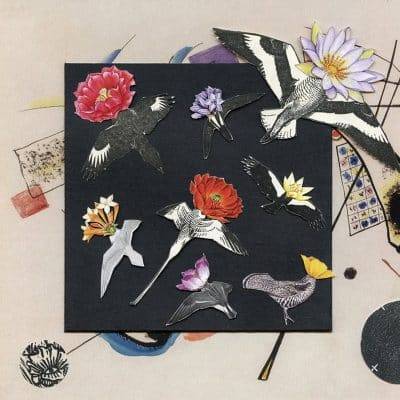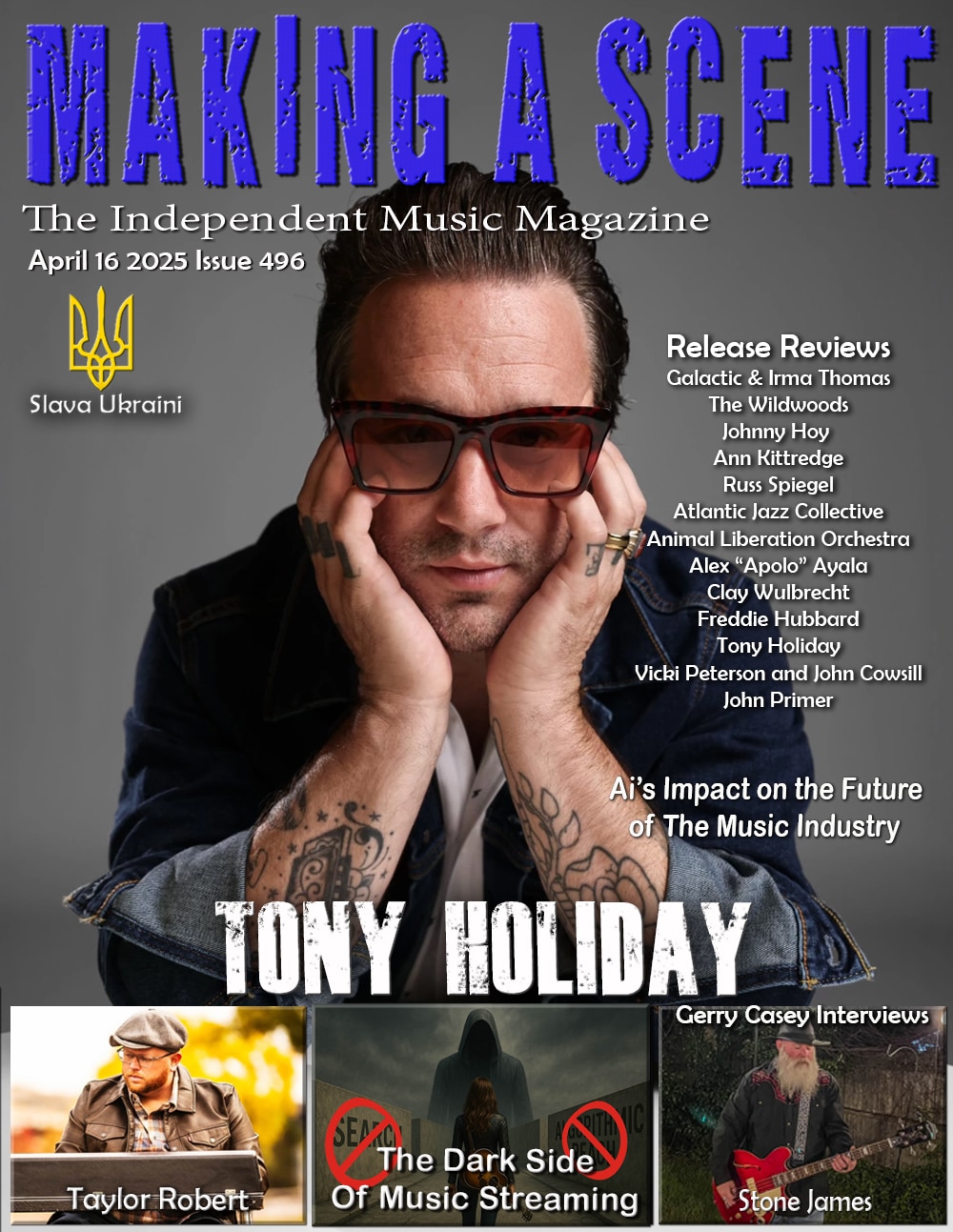Caroline Davis’ Alula Captivity
 Caroline Davis’ Alula
Caroline Davis’ Alula
Captivity
Ropeadope
Avant alto saxophonist, composer and activist Caroline Davis and her band Alula issue through Ropeadope Davis’ first social justice album, Captivity. Davis’ electronics infused compositions speak to the lives of eight heroes who kept hope alive through incarceration. Joining Davis are turntablist Val Jeanty, bassist Chris Tordini and drummer Tyshawn Sorey, as well as special guests Qasim Naqvi and Ben Hoffmann, Captivity reflects and expands on the essential conversation around incarceration, the prison industrial complex, and abolition. The topic seems to be gathering momentum. Last year around this same time Albert Marqués & Keith Lamar, the latter one of the subjects herein, released Freedom First to draw awareness to LaMar, who many feel was wrongfully convicted. Popular roots artist Rhiannon Giddens addresses the topic on her recent You’re The One with “Another Wasted Life” is inspired by Kalief Browder, a New York City teenager who spent two years in solitary confinement at Rikers Island when he couldn’t make bail on a charge of stealing a backpack. He died by suicide after his release, after charges were dropped without a trial. Davis highlights similar stories and situations in the long tradition of Black artists from Ma Rainey to Bessie Smith, Memphis Minnie, Nina Simone, Abbey Lincoln and Max Roach and nowadays with the aforementioned efforts and Terri Lyne Carrington’s “Music for Abolition.”
The subject of incarceration first impacted Davis as a ten-year-old girl visiting her incarcerated uncle in Sweden. During the pandemic, Davis dedicated her free time to learning all about incarceration. Davis has a history of approaching her albums thematically. Portals Volume 1: Mourning (Sunnyside), dealt with the loss of her father and Alula (New Amsterdam, 2019), an electro-jazz scientific study on the alula structure of bones and feathers on most bird wings garnered acclaim from many high-profile outlets. Many prestigious authors and poets have written about birds in cages to relate to cultural and societal issues. Captivity updates Alula with its bird imagery but now draws upon the metaphor of their potential captivity as a symbol of incarceration.
There are ten tracks, all entitled in lower case, of various lengths that address the topic, some going back to the Medieval Ages. “[the day has come]” opens with jarring electronics and a sample of a reading of Sojourner Truth’s speech from 1867, in which she was a speaker at the American Equal Rights Association first anniversary celebration. We hear her alto saxophone expressing anger and rage with Sorey’s driving beats and Jeanty’s electronics weaving through more audio samples. The piece honors accused heretics Agnes Franco (burned in 1320) and Huguette de la Côte (burned in 1321) with excerpts from a Lorraine Hansberry speech from a Town Hall forum sponsored by The Association of Artists for Freedom from 1964, as well as a clip from Astrid Dalais’ TEDx Talk called The Beauty of Us, which speaks on the ways in which various forms of art make life colorful. The latter brings in hope, emphasizing how the accused heretics stayed true to their beliefs to the end, hoping to influence future such situations. The next seamless transition, as she continues to improvise on her alto in the vein of Eric Dolphy, to the frenetic activity of her small combo we land on “And yet it moves [for Galileo]” and its companion “[the malignity of fate]” where Galileo, also accused of heresy, is one whose bravery in the face of adversity has long inspired Davis.
During her studies Davis was inspired by another Davis, Angela, who has dedicated years to prison abolition. Thus, the piece “synchronize my body where my mind had always been [for Jalil Muntaqim].” Jalil Muntaqim, a member of the Black Panther party was sentenced to life, with the possibility of parole in 1974. Angela and Jalil began to communicate through letters, and she began to fight harder. This Davis, Caroline, donated a performance for Die Jim Crow Records’ fundraiser, as well as the Jazz for Jalil event which raised money for Jalil’s re-entry. Jalil was released in 2020 after nearly 50 years imprisonment. Sorey and Davis are especially invigorated here. “[terrestrial rebels]” is also a nod to his writings.
The Justice for Keith LaMar campaign has been a major cornerstone in the fight for corporal justice in New York City, especially among fellow activist-creatives. Davis composed “a way back to myself [for Keith LaMar]” for him, and interspersed a talk he gave during the pandemic after her low register elegiac alto statement. Qasim Naqvi joins on modular synth stays aboard for “the promise i made [for Joyce Ann Brown]” which has a quieter, undulating vibe but is nonetheless steeped in intense improvisation. Brown was wrongly convicted of murder in 1980 and pleaded for freedom successfully as she was released in November of 1989, exonerated in 1990. Brown later founded Mothers for the Advancement of Social System to help people navigate their lives post incarceration, so David nods to her accordingly and delivers her most impassioned alto playing in the process while Sorey is whirlwind on his kit.
Similarly, Davis continues her fiery alto attack of fierce clusters in the brief “[i won’t be back, ms. Susan Burton]” salutes the advocate, who after being in and out of the system for almost 20 years, founded a nonprofit organization called A New Way of Life in 1998, which provides housing and other resources to women immediately after they are released. The album closes in poignant funereal tones with “put it on a poster [for Sandra Bland].” Bland was a victim whose death in her prison cell was suspiciously marked as a suicide. Bland is yet another black woman who was wrongly accused.
This courageous album which really finds its emotional center beginning with the piece for Jalil Muntaqim and extending through those for Keith LaMar and Joyce Ann Brown. Kudos to Davis for shining her light on the oft misguided criminal justice system.
- Jim Hynes
Buy Us a Cup of Coffee!
Join the movement in supporting Making a Scene, the premier independent resource for both emerging musicians and the dedicated fans who champion them.
We showcase this vibrant community that celebrates the raw talent and creative spirit driving the music industry forward. From insightful articles and in-depth interviews to exclusive content and insider tips, Making a Scene empowers artists to thrive and fans to discover their next favorite sound.
Together, let’s amplify the voices of independent musicians and forge unforgettable connections through the power of music
Make a one-time donation
Make a monthly donation
Make a yearly donation
Buy us a cup of Coffee!
Or enter a custom amount
Your contribution is appreciated.
Your contribution is appreciated.
Your contribution is appreciated.
DonateDonate monthlyDonate yearlyYou can donate directly through Paypal!
Subscribe to Our Newsletter
Discover more from Making A Scene!
Subscribe to get the latest posts sent to your email.














































